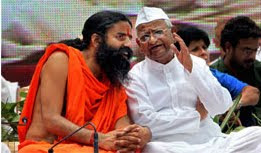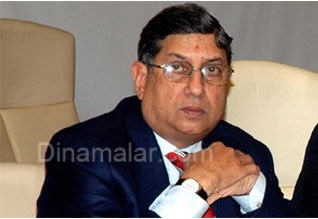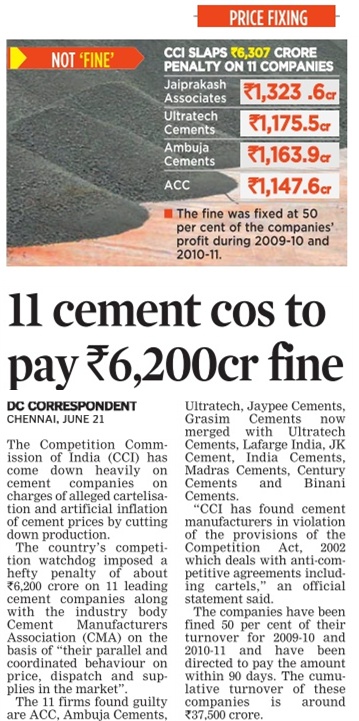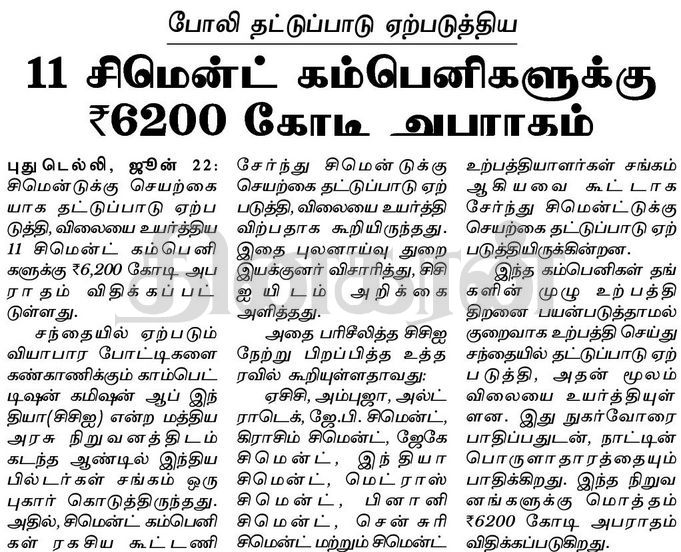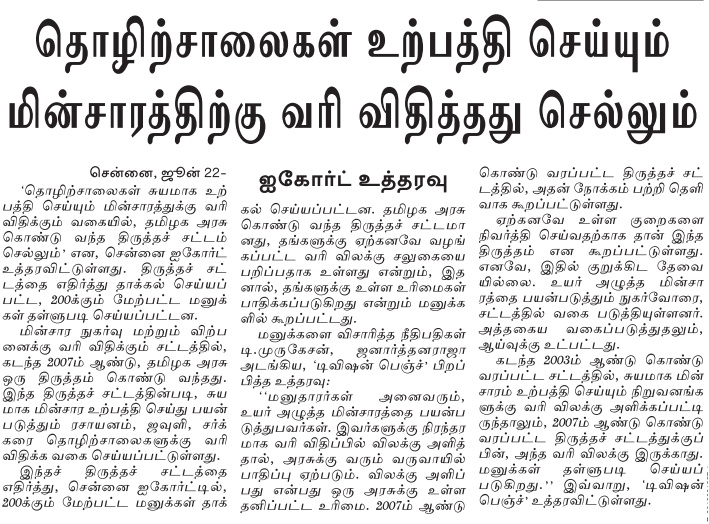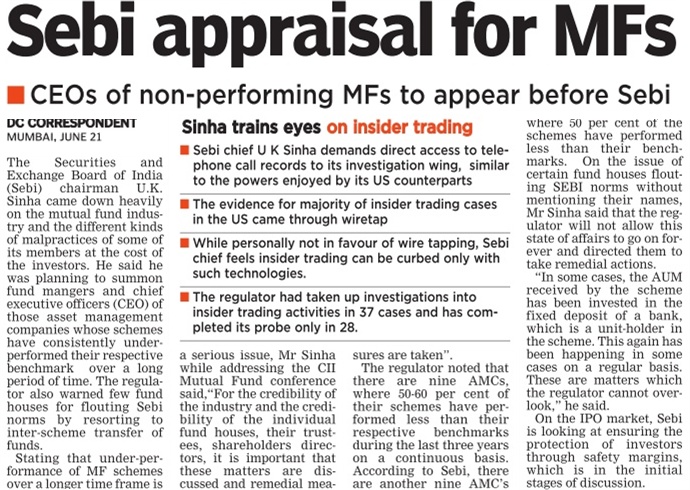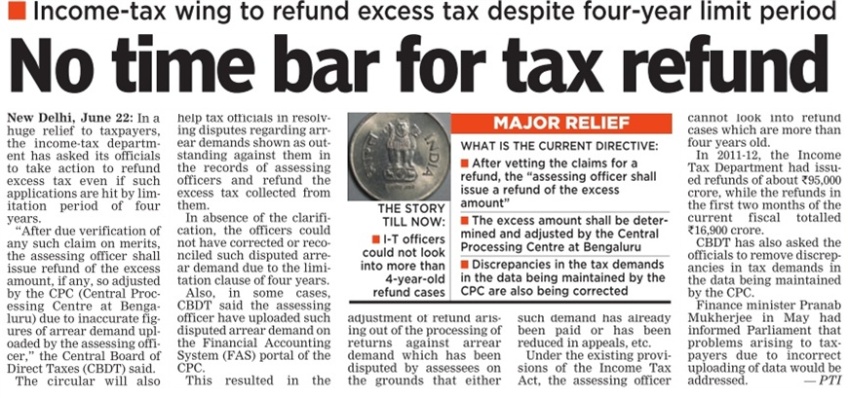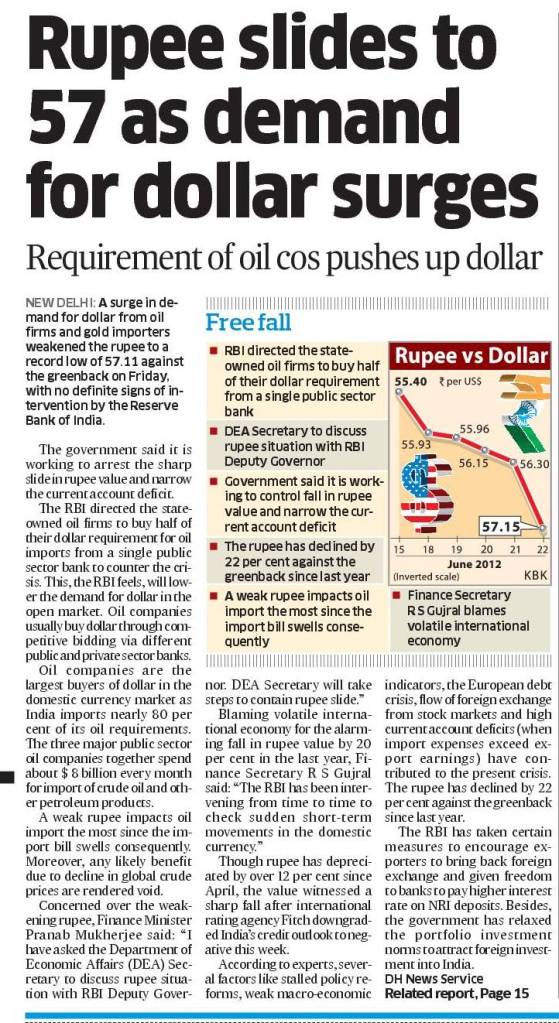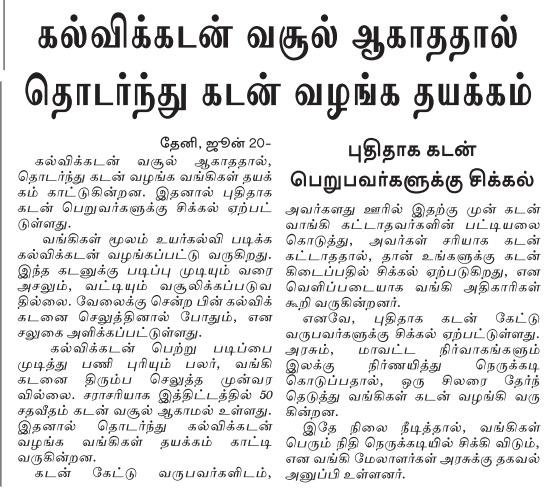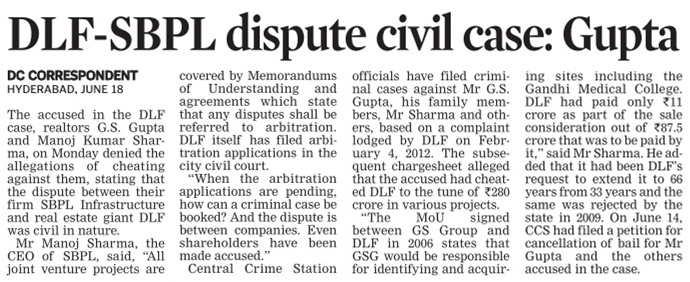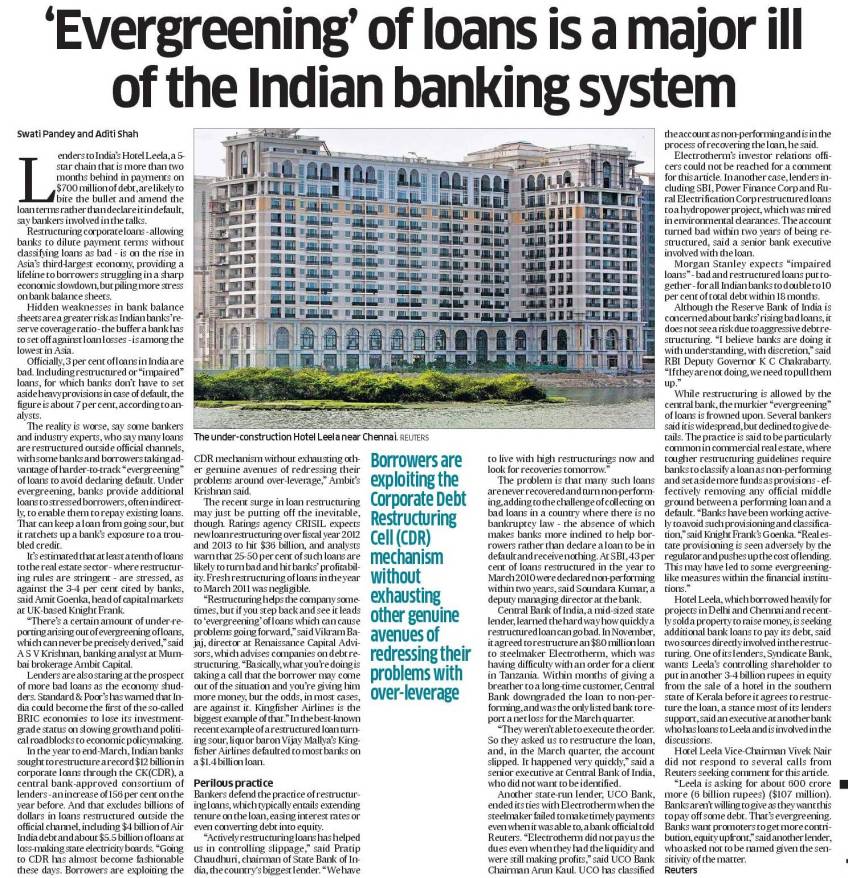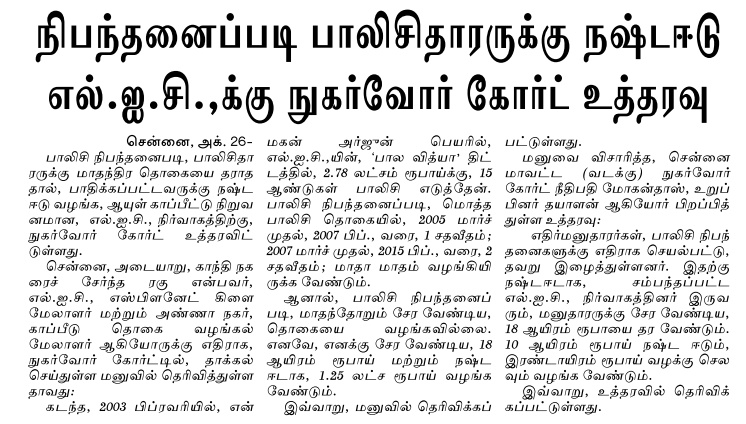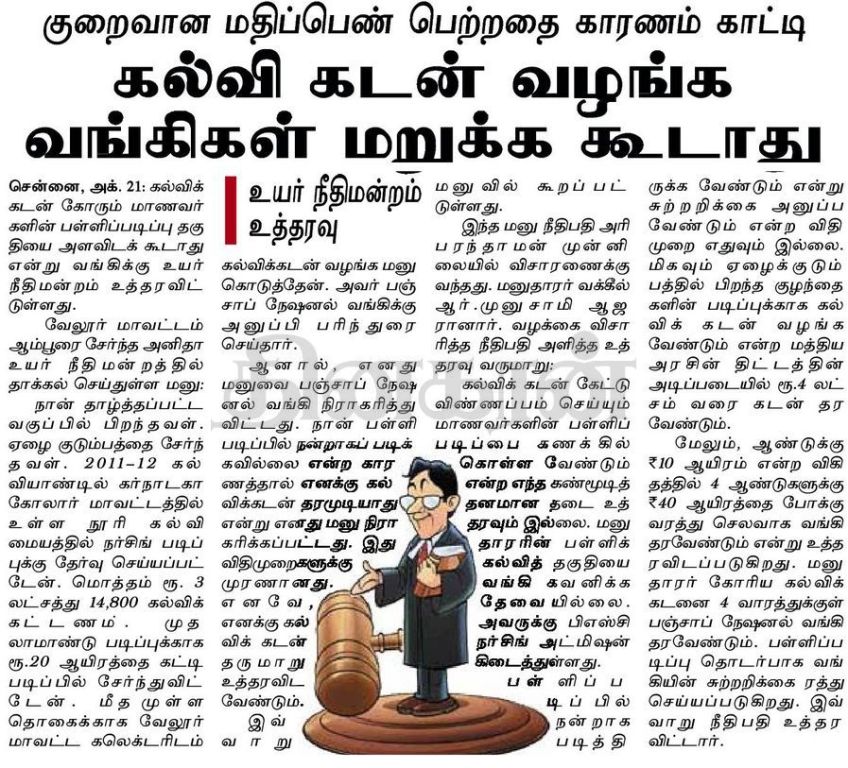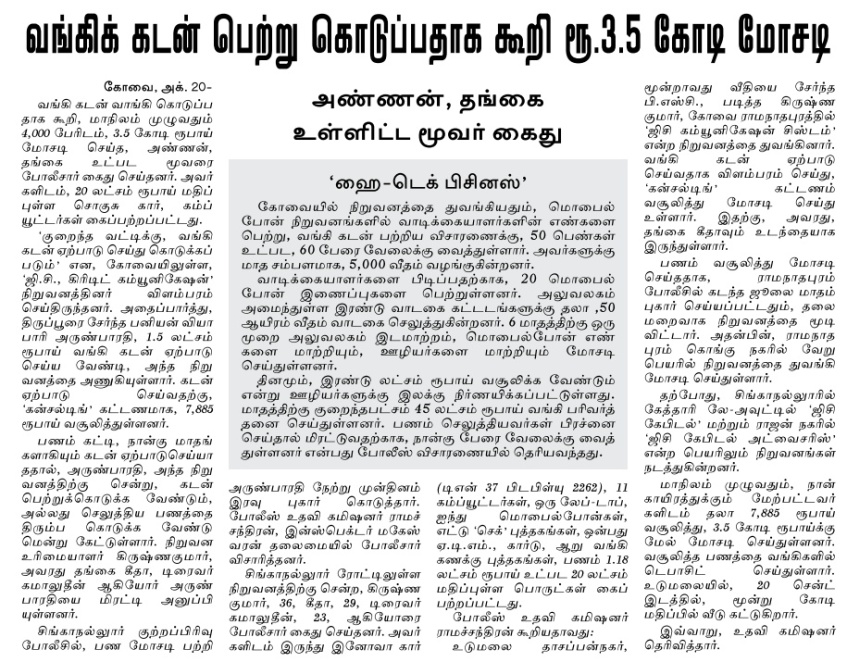 ஐரோப்பிய யூனியன் நாடுகளில் ஒன்றான ஸ்பெயினில் 4-வது மிகப்பெரிய வங்கியான பேங்கியா திவாலாகிவிட்டது.இந்நிலையில் அரசிடம் இருந்து சுமார் ரூ.13 லட்சத்து 30 ஆயிரம் கோடி (19 மில்லியன் யூரோ) நிதியுதவியைக் கேட்டுள்ளது அந்த வங்கி. முன்னதாக வங்கி கடனில் மூழ்கி வருவதை அறிந்த ஸ்பெயின் அரசு இரு வாரங்களுக்கு முன்பு சுமார் ரூ.3 லட்சத்து 35 ஆயிரம் கோடி நிதியுதவி அளித்து, வங்கியை பகுதியாக தேசியமயமாக்கப்பட்ட
ஐரோப்பிய யூனியன் நாடுகளில் ஒன்றான ஸ்பெயினில் 4-வது மிகப்பெரிய வங்கியான பேங்கியா திவாலாகிவிட்டது.இந்நிலையில் அரசிடம் இருந்து சுமார் ரூ.13 லட்சத்து 30 ஆயிரம் கோடி (19 மில்லியன் யூரோ) நிதியுதவியைக் கேட்டுள்ளது அந்த வங்கி. முன்னதாக வங்கி கடனில் மூழ்கி வருவதை அறிந்த ஸ்பெயின் அரசு இரு வாரங்களுக்கு முன்பு சுமார் ரூ.3 லட்சத்து 35 ஆயிரம் கோடி நிதியுதவி அளித்து, வங்கியை பகுதியாக தேசியமயமாக்கப்பட்டNew Indian-Chennai News + more

| Post Info | TOPIC: Indian Business-Banking News | ||||||
|---|---|---|---|---|---|---|---|
|
|
|
||||||
|
|
|
||||||
|
|
|
||||||
|
|
|
||||||
|
|
|
||||||
|
|
|
||||||
|
|
|
||||||
|
|
|
||||||
|
|
|
||||||
|
|
|
||||||
|
|
|
||||||
|
|
|
||||||
|
|
|
||||||
|
|
|
||||||
|
|
|
||||||
|
|
|
||||||
|
|
|
||||||
|
|
|
||||||
|
|
|
||||||
|
|
|
||||||
|
|
|
||||||
|
|
|
||||||
|
|
|
||||||
|
|
|
||||||
|
|
|
||||||
|
|
|
||||||
|
|
|
||||||
|
|
|
||||||
|
|
|
||||||
|
|
|
||||||
|
|
|
||||||
|
|
|
||||||
|
|
|
||||||
|
|
|
||||||
|
|
|
||||||
|
|
|||||||
|
|
|
||||||
|
|
|
||||||
|
|
|
||||||
|
|
|
||||||
|
|
|
||||||
|
|
|
||||||
|
|
|
||||||
|
|
|
||||||
|
|
|
||||||
|
|
|
||||||
|
|
|
||||||
|
|
|
||||||
|
|
|
||||||
|
|
|
||||||
|
|||||||
|
|
||



|























